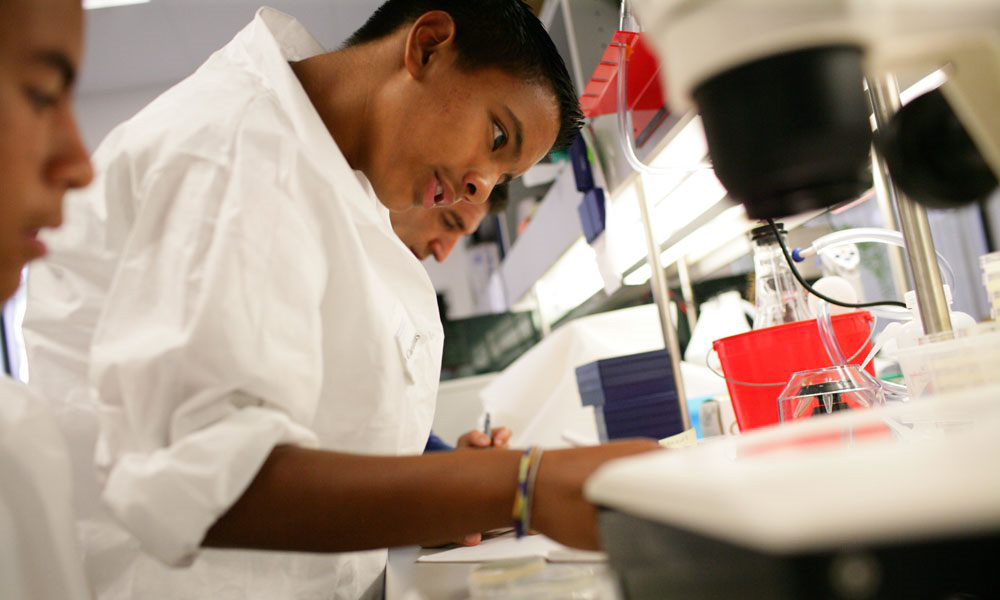Thanks to a new grant awarded to Sanford Burnham Prebys by the California Institute for Regenerative Medicine (CIRM), 57 California high school students from underrepresented groups will have the chance to complete a paid internship at the Institute for the next five consecutive summers.
The $509,000 grant was awarded to Paula Checchi, PhD, Alessandra Sacco, PhD, and Evan Snyder, MD, PhD
The mission of CIRM is to accelerate stem cell research and provide treatment to patients with unmet medical needs. And although CIRM directly funds faculty, many of their initiatives also focus on training the next generation of stem cell researchers. Late last year, Sanford Burnham Prebys received $5 million from CIRM to fund new training programs aimed at PhD students and postdoctoral researchers.
“One of the benefits of a program like this is that we’ll be able to inspire students early to pursue biomedical research,” says Checchi, a principal investigators on the grant and longtime educator of high school and undergraduate students. “A lot of students might not even realize that pursuing a STEM degree is an option for them, and that’s something we want to change.”
The new grant was awarded as part of CIRM’s SPARK Training Program, a diversity, equity and inclusion (DEI) initiative that targets high school students without access to summer research internship opportunities due to socioeconomic constraints. This grant is one of 11 awarded by CIRM to research institutions across California.
“At the high school level, a lot of research internships are unpaid, which can alienate a lot of students, especially if they’re also part of a group that isn’t represented well in scientific research to begin with,” says Checchi. “Programs like this help flip that script and will contribute to increased diversity in science over the long term.”
In addition to getting hands-on research experience, interns will also participate in community outreach, patient advocacy and other educational activities under the mentorship of experienced professors.
“The research element is obviously important, but programs like this also help students develop into confident, capable young scientists who are able to inspire those around them,” says Checchi. “We’re trying to plant the seed for these bright young minds to flourish.”
